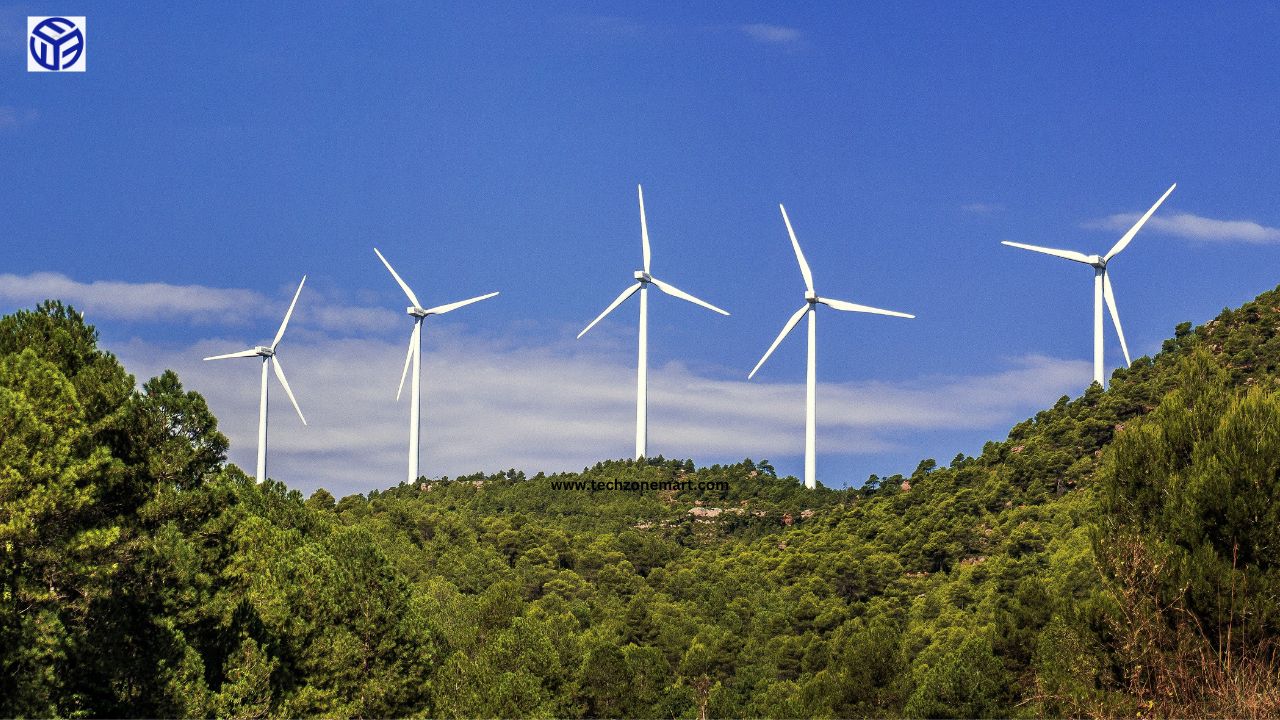Indian Renewable Energy Development Agency Limited is an Indian public sector enterprise that provides financial support and other services to projects related to renewable sources of energy and conservation.
India’s focus on renewable energy growth is a significant development in the global energy landscape. The country’s ambitious target of achieving 450 GW of installed renewable energy capacity by 2030 is driven by a combination of government support, declining costs of renewable energy technologies, and growing demand for clean energy. Let’s delve into these drivers and explore the implications for the economy, as well as provide insights into some of the top renewable energy stocks in India.
Top Renewable Energy Stocks in India (as of June 2, 2024)

- KP Energy Ltd:
- Focus: Windmill infrastructure and geothermal energy development.
- Market Position: Small-cap green energy company with a growing presence.
- BF Utilities Ltd:
- Focus: Renewable energy projects.
- Market Position: A holding company with significant investments in renewable energy.
- KPI Green Energy Ltd:
- Focus: Solar energy generation through various business verticals.
- Market Position: Strong player in the solar energy market.
- SJVN Ltd:
- Focus: Hydropower.
- Market Position: Major government-owned company in the hydropower sector.
- KKV Agro Powers Limited:
- Focus: Development of solar and wind power projects.
- Market Position: Engaged in multiple renewable energy initiatives.
- Orient Green Power Company Ltd:
- Focus: Solar and wind power generation.
- Market Position: A significant player in the renewable energy market.
- WAA Solar Ltd:
- Focus: Solar energy.
- Market Position: Leading solar energy company with extensive projects.
- Energy Development Company Ltd:
- Focus: Renewable energy sector.
- Market Position: Government-owned company with a broad renewable energy portfolio.
- NHPC Ltd:
- Focus: Hydropower.
- Market Position: A key player in India’s hydropower industry.
- Adani Green Energy Ltd:
- Focus: Solar and wind power projects.
- Market Position: Part of the Adani Group, a major green energy company with extensive projects.
Factors of Renewable Energy Growth in India
- Government Support:
- Policies and Initiatives: The Indian government has rolled out various policies to encourage renewable energy adoption, including feed-in tariffs, subsidies, tax breaks, and renewable purchase obligations (RPOs).
- National Solar Mission: Aimed at establishing India as a global leader in solar energy, it includes plans to create 100 GW of solar power by 2022.
- Incentives for Wind Energy: Support through measures such as accelerated depreciation, generation-based incentives (GBI), and viability gap funding (VGF).
- Declining Costs of Renewable Energy Technologies:
- Solar Power: The cost of solar photovoltaic (PV) technology has dropped significantly, driven by advancements in technology and economies of scale.
- Wind Power: Similar cost reductions have been observed in the wind energy sector, making it more competitive with conventional energy sources.
- Growing Demand for Clean Energy:
- Environmental Concerns: Increasing awareness of climate change and its impacts has led to a stronger push for cleaner energy sources.
- Energy Security: Renewable energy reduces dependence on imported fossil fuels, enhancing India’s energy security.
Economic Impacts
The expansion of renewable energy in India is expected to have several positive economic impacts:
- Job Creation: The renewable energy sector is labor-intensive and has the potential to create millions of jobs in manufacturing, installation, and maintenance.
- Reduction in Air Pollution: Transitioning to renewable energy can significantly reduce air pollution, improving public health and reducing healthcare costs.
- Energy Security: Diversifying the energy mix with a higher share of renewables enhances energy security and reduces the risks associated with fuel price volatility.
Conclusion
India’s renewable energy sector is poised for substantial growth, driven by supportive government policies, decreasing technology costs, and increasing demand for clean energy. The positive economic impacts, including job creation and enhanced energy security, further bolster the case for renewable energy investment. For investors, the renewable energy sector in India offers a variety of opportunities, but due diligence and thorough research are crucial before making investment decisions.

